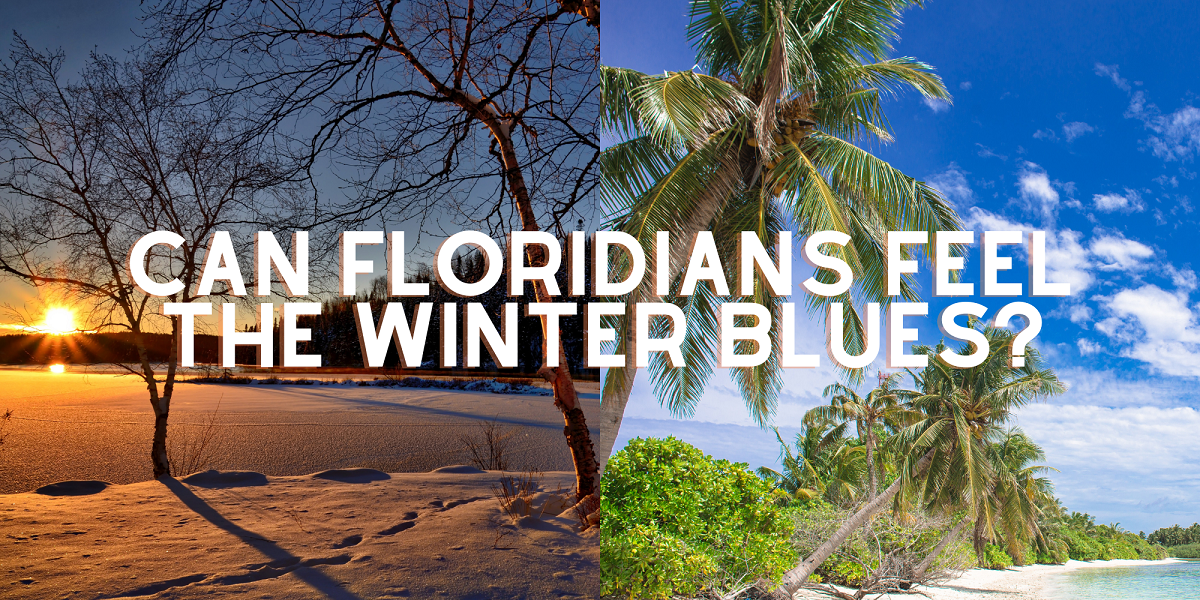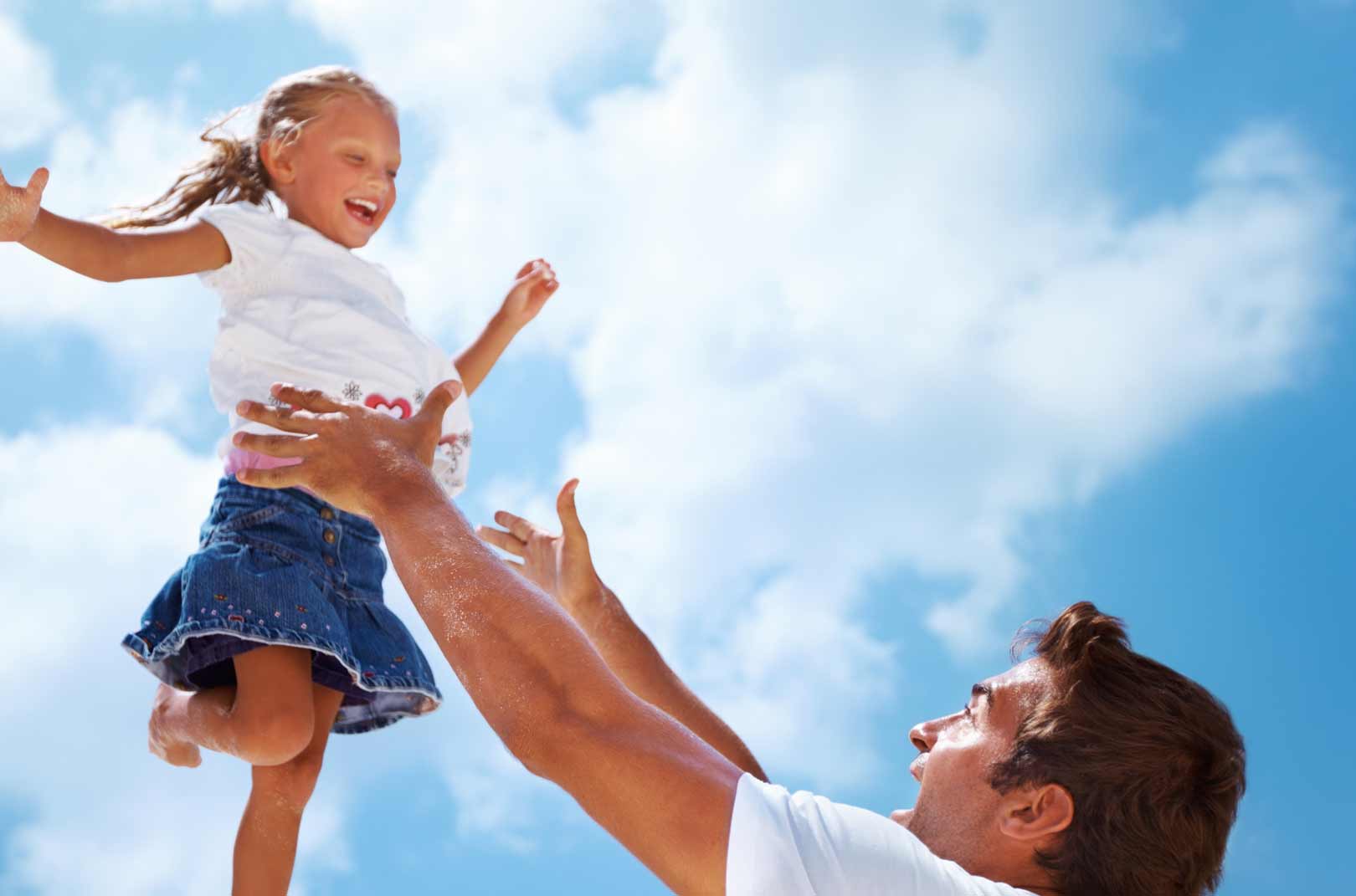 Feb. 2, 2021 | By Jeremy Waller, MBA (Marketing and Community Outreach Manager – Behavioral Health)
Feb. 2, 2021 | By Jeremy Waller, MBA (Marketing and Community Outreach Manager – Behavioral Health)
Introduction
Have you ever felt down or “blue” during certain times of the year? Did you know it could be seasonal affective disorder (SAD)?
Often referred to as the “winter blues,” SAD is a common form of depression often occurring during certain times or seasons of the year, particularly in winter, when days tend to be shorter and sunlight scarce.[1]
Now, at this point you might be asking, “But wait, I live in Florida, does seasonal affective disorder apply to Floridians too?”
It’s a valid question and one we’re going to unpack in this article. First though, I want to share a quick story.
A Tale of Two Climates
Like most Floridians I’m not a native. I moved here from the northeast many moons ago. Being the Florida transplant I am, it probably comes as no surprise that I don’t really miss the winters back north…at all!
For anyone familiar with the northeast in winter, it’s pretty gloomy. To be sure, the summers are pleasant, and the burnt verdure of the autumnal months leaves no shortage of gorgeous landscapes to be found.
However, once said fall foliage shakes off its vibrant hues, the surrounding environs instantly plunge into the “dead of winter.” That’s when things can get downright…depressing.
The trees become barren, chilling winds flank the land with every passing Nor’easter, and the sky continually dons a languid gray color.
Many times, this would all make me feel quite blue. As a result, during the wintry months we would often stay cooped up inside.
Of course, this had side effects that were actually compounding my winter blues. I would get even less sunlight for example, and my activity levels and sleep patterns changed drastically too.
When I moved to Florida though, I didn’t realize the winter blues would pack their bags and come with us.
Don’t get me wrong, one of my favorite things about Florida is its relatively temperate climate year-round, especially in Central Florida (sorry to my friends in the panhandle who contrary to public opinion do get snow every now and then).
Nevertheless, while Florida’s sub-tropical, Jimmy Buffet inspired lifestyle is a far cry from the north’s cold and blustery winters, that does not mean that people who reside here never experience the winter blues.
In fact, I’ve found them creep back into my life from time to time, especially in the winter months.
So, if my tale of two climates is any indication, SAD is not limited to the north, and other evidence confirms this.
Floridians and Seasonal Affective Disorder
While SAD is less common the closer you are to the equator it still occurs in those areas. What is more, it can also occur during the spring and summer months for some people.
Also, though we reside in the “Sunshine State,” we are not the sunniest state in the USA. Arizona holds claim to that record (we’re tenth by the way).
Additionally, as we shall see next, SAD is more related to seasonality than climate, and personal habits also play a role in how it manifests itself.
So, to answer our original question, yes, you can definitely feel the winter blues in the Sunshine State.
Seasonal Affective Disorder in Focus
The Mayo Clinic defines Seasonal affective disorder as “a type of depression that’s related to changes in seasons.”[2]
It often occurs around the same time each year, typically beginning in the fall and continuing into the winter months. However, as mentioned, SAD can also occur in spring and/or early summer.[3]
Common symptoms include a lack of energy, moodiness, sleep cycle problems and depression.
SAD is often misunderstood. As we have seen, it does not discriminate based on where you live. It can affect you in Maine just as much as in Florida.
What is more, it is related to a multitude of factors. These include an individual’s circadian rhythms (biological clock), serotonin levels (mood) and melatonin levels (sleep patterns).[4]
All of these are directly affected by the weather, change in seasons and your living arrangements and personal habits.
For example, lower amounts of sunlight can cause serotonin levels to drop. Additionally, if you spend a lot of time indoors, especially in a badly lit environment, it can affect your sleep and eating patterns which in turn alters your biological clock.
By the way, this is why NASA astronauts have to be very careful with sleep, since they are in space the light situation is quite different, and it can really confuse their biological clocks if they are not careful to maintain strict sleep regimens.[5][6]
So, while seasonality affects our moods and plays a critical role in SAD, there are other lifestyle and coping factors that can worsen its affects. Thankfully, there are ways to mitigate SAD.
Conclusion – Overcoming the Winter Blues
Many treatment methods exist to help people overcome SAD. The most common are light therapy (phototherapy), medications and psychotherapy.[7]
While these are all perfectly viable options, being mindful of how you respond to feelings related to SAD can also help.
For example, ensuring you get a proper amount of sun each day and spending time outside are very important.
Often, if we start feeling down we can withdraw and go out less which in the case of SAD only serves to accentuate its symptoms.
Also, getting enough sleep, maintaining proper patterns (not staying up later during certain times of the year), eating health foods and ultimately remaining engaged with others and activities can go a long way to moving beyond the winter blues.
Nevertheless, I want to reiterate that if you are experiencing feelings related to SAD or depression, definitely take the first step and talk to someone about them. As always, we at IMPOWER are here to help.
For more information, or to schedule your next visit via telehealth, call our Centralized Referrals and Scheduling Department at (321) 639-1224; Option 2 or visit our homepage.
Also, don’t forget that we are now offering no cost mental health services statewide through telehealth to children and adults who have been impacted by COVID19. Find out more here.
Sources
[1] University of Florida Health, Seasonal affective disorder.
[2] Mayo Clinic, Seasonal affective disorder (SAD).
[3] Ibid.
[4] Ibid.
[5] NASA, Sleeping in Space.
[6] Space.com, Sleeping in Space: How Astronauts Get a Good Night’s Rest.
[7] Mayo Clinic, Seasonal affective disorder (SAD).
Recent Blog Articles
- Creating Change, One Person at a Time May 21, 2024
- 10 Tips to Reduce Stress April 4, 2024
- Tee Up for Good at “FORE The Village” to Benefit Homeless Youth February 13, 2024
- Driver’s Thoughts on Black History Month February 14, 2023
- Love Languages February 14, 2023
- Six Tips to Handle Holiday Stress December 13, 2022
- Financial IMPOWERment April 21, 2022
- The Grove at 50 – Yesterday’s Legacy, Tomorrow’s Vision [Part 1] October 25, 2021
- 4 Tips for Making Emotionally Sound Financial Decisions September 7, 2021
- The Importance of Routines August 2, 2021

